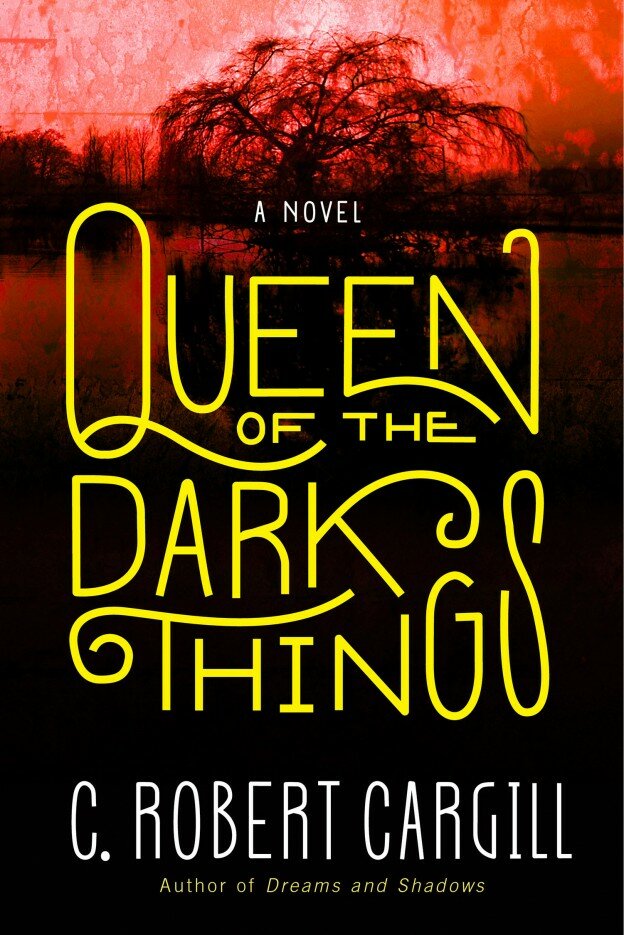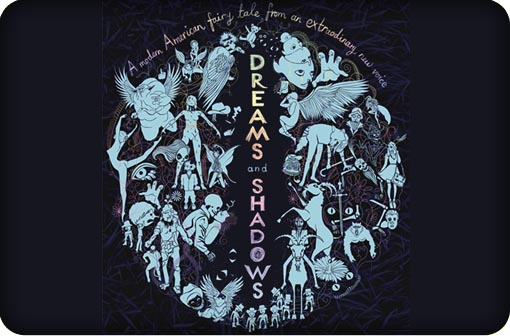JUNKFOOD CINEMA: PRATTLE BEYOND THE STARS
posted on March 4th, 2014It’s here! The very first episode of my new podcast, Junkfood Cinema. This week we talk about one of my deep fried favorite films: BATTLE BEYOND THE STARS! Join us, won’t you?
It’s here! The very first episode of my new podcast, Junkfood Cinema. This week we talk about one of my deep fried favorite films: BATTLE BEYOND THE STARS! Join us, won’t you?
I’ve reached that bizarre point in my life in which I increasingly meet more and more people who know me for what I do now rather than what I did before, people every day who say “Oh, I didn’t know you were a film critic.” For ten years, day in and day out, I wrote about movies. And I loved it. It’s a strange profession with its own culture, politics, stresses and demands. It gets in your blood. And it’s hard to let go of.
I miss it.
But I can’t just go back to reviewing movies. The two careers simply don’t complement one another. By the end of my career as a critic I found myself abstaining from reviews – positive ones, mind you – because I was pitching or in talks at the time with the studio that made them. And I’m often reminded of what happened to Brad Miska, who wrote the first negative review of SINISTER. That he was the editor-in-chief of a major horror blog wasn’t the problem – it was that he was also the producer of V/H/S, another found footage horror film that was, at the time, opening the same day as our film. It took all of fifteen minutes for that connection to be made after he posted his review before I started getting calls from up the chain about it. There isn’t a doubt in my mind that Miska was being entirely 100% honest and probably didn’t even make the connection himself until it was mentioned. But that’s not the conversation that happened, nor the way many people choose to remember it. As a critic, your reputation is the only thing you have. If people can’t feel that they trust you, then your opinion has no value whatsoever. So I had to get out and move on.
But man, oh man, do I miss talking about film. A number of folks have been trying to rope me back in with editorials or podcasts, but nothing worked out. Whether it was scheduling or content, nothing really fit. Until now.
I’ve known Brian Salisbury for a lot of years. He’s a great guy and one of my close buddies with whom I’ve spent countless hours drinking coffee and devouring breakfast food at 2AM, arguing film or catching up on the happenings of the movie blogosphere. So when he mentioned that he was resurrecting his column JUNKFOOD CINEMA – of which I was a huge fan – as a podcast and asked me to come aboard, I knew I’d found just the right project.
JUNKFOOD CINEMA is a celebration of the genre films often relegated to the dusty corners of time. Those movies that were often crippled by their budgets or a single bad performance or failed expectations or a goofy title or what have you. Some fall just shy of greatness; others are mostly terrible with a few bright spots so brilliant or engaging that they warrant seeing for that fact alone. This isn’t about picking on bad movies or ironically enjoying stuff no one would ever have any real reason to watch; this is about highlighting those films that really do have real reasons to be remembered. We hope to turn you on to some wonderful gems, to talk about what went so right – and so wrong – with these underrated classics. Sometimes we’ll talk about fairly modern films, other times we’ll go 80 years back.
In the coming months we will be doing theme shows on under-appreciated genre actors, strange subgenres and movements in cinema, as well as the occasional show dedicated to a film that requires a lengthy discussion all its own. Brian and I will be digging through our DVD collections and Netflix queues to share some really special films with you, and as the show progresses, we’ll be listing those films a week in advance so you can play along with the home game (or find out why the hell we even thought you should watch it to begin with.) And we hope to foster a discussion about why so many of these films really are something else.
I’ve got a number of projects in the hopper – more films, more novels, some short fiction and anthology work – but JUNKFOOD CINEMA will be coming to you week in and week out starting March 4th. I hope you’ll crack open a beer or pour yourself a hot cup of coffee, kick back and join us as we unleash the shared passion for films that make Brian and I such great friends.
You can find a short interview and
I know, I know. I’ve not been around these parts very often recently. But that changes now. Part of the reason I’ve been away is that I’ve been locked in my office all summer working on the follow up to DREAMS AND SHADOWS, titled QUEEN OF THE DARK THINGS. Taking place just six months after its predecessor, we find Colby and friends dealing with the fallout of the events of the first book, while grappling with a series of new threats that once again are rising from his past. I’m really proud of this new book, so without further ado…

Fans of local art, stay tuned for the first Dragon’s Lair Comics and Fantasy INDIE CREATOR NIGHT! We’ll be showcasing over a dozen local, independent artists, writers, and cartoonists for your enjoyment. Check out original prose, handmade jewelry, and local comics, all right here at Dragon’s Lair!
Here’s just a small sampling of the guests we’ll be hosting:
EK Weaver of The Less Than Epic Adventures of TJ and Amal
Hugo Winner Elizabeth Bear
Amanda Downum of the Necromancer Chronicles
Acclaimed fantasy novelist Ari Marmell
Steve Niles of 30 DAYS OF NIGHT
…and TONS more!
The fun starts at 7:00 pm! Don’t miss it!
I’ll be sharing a table with close friend, late night coffee buddy and incredible fantasy novelist Ari Marmell. The lineup is amazing and the whole thing promises to be a crazy fun night.

You’re familiar with C. Robert Cargill, though you might not have known it. He worked as a film critic for years under a pseudonym — massawyrm — for Ain’t It Cool News, and he penned the screenplay for the 2012 horror film Sinister.
Last week Cargill’s journey from commentary to creative writing was made official with the release of his debut novel, Dreams and Shadows, and massawyrm stepped into a new career as a novelist. Dreams and Shadows is a dark modern fairytale filled with fairies and magic woven into a classic coming of age story. FairyRoom is proud to present this exclusive interview with Cargill on his writing process and the inspiration he drew from folklore.
There’s nothing cooler than pitting a monster against another monster. Wolf versus vampire, troll versus imp, fairy versus djinn. Role playing games and fantasy movies have always been quick to try to pit magical creatures against each other, but the logic of these scenarios can be flimsy. How, exactly, does that werewolf share a world with a djinni? Some fantasy stories, like the one in C. Robert Cargill’s new novel Dreams and Shadows, aim for plausibility, crafting a story where a creature’s reason for being in the story makes sense.
AICN veteran on goblins, research, and if he’s done with criticism.
It’s an old insult: If critics know so much about films and books, why don’t they write them? That’s exactly what C. Robert Cargill has done, and he argues that being a critic made him a better writer. He said, “I went into every movie trying to learn from it as much as I was trying to dissect it.”
Faeries are often considered fragile, beautiful creatures full of whimsy and magic, but as the hero in C. Robert Cargill’s Dreams and Shadows discovers, faeries can often have a nasty side. When young Colby is taken from his less-than-perfect home by faeries, he’s brought to a place inhabited by all sorts of paranormal creatures. But this new world has problems of its own, and Colby learns that the Limestone Kingdom is something that will stick with him forever. Today, the author shares why he gave his faeries a tough edge, but why he still prefers them to the typical pixie.
Folklore and Mythology are the polite, though backhanded, words we use to describe religion we don’t believe in; Mythology being the word we ascribe to officially recognized beliefs, Folklore to those that didn’t borrow from the establishment, but people believed anyway. When you think about it, it’s strange that so much of what we put in our fantasy books, movies and video games actually, once upon a time, was believed somewhere, by someone, as (their) God’s honest truth. After all, Tolkien didn’t invent elves and dwarves – he borrowed them from the religions of northern Europe – and The Arabian Nights weren’t all just bedtime stories, they were lessons of Islam and tales about the things people once thought really might lurk in the desert sands.

Breitbart says Movie Blogger Impresses in Fantasy Novel Debut.
Kirkus calls it A mesmerizing and highly original debut.
Publishers Weekly names it one of their ten most anticipated SF/F books of the season and calls it a roller-coaster ride into the depths of strangeness and despair.
Starburst Magazine says I have penned a thoroughly enchanting debut novel.
Badass Book Reviews lives up to to its name and says Though this tale is very dark, violent, and heartbreaking it is also touching and emotional.
Clique Clack calls it a dark, exciting debut of urban fantasy.
Thanks to all the early reviewers for their kind words! I couldn’t be happier with the response.
